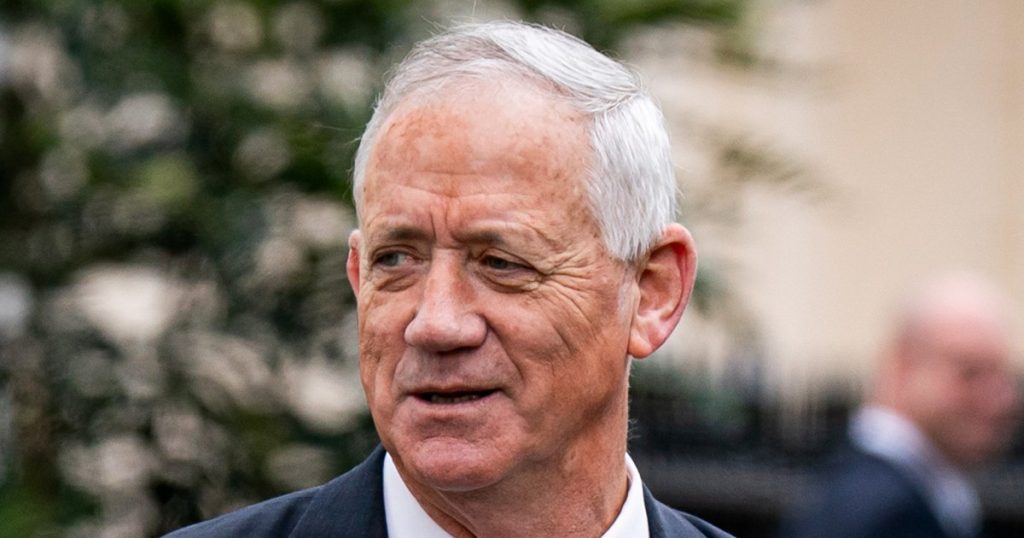Benny Gantz, a member of Israel’s war Cabinet, has threatened to resign from the government if it does not adopt a new plan for the war in Gaza. This announcement has escalated a divide within Israel’s leadership, as they have yet to achieve their goals of dismantling Hamas and returning hostages abducted during an attack in October. Gantz’s six-point plan includes the return of hostages, ending Hamas’ rule, demilitarizing Gaza, and establishing an international administration for civilian affairs. He has set a deadline of June 8 for this plan to be adopted, after which he will leave the government.
Gantz, a centrist politician and long-time rival of Prime Minister Benjamin Netanyahu, joined the coalition and war Cabinet early in the conflict. His departure would leave Netanyahu more reliant on far-right allies who have advocated for a hard-line approach in negotiations over a cease-fire and hostage release. These allies believe that Israel should occupy Gaza and rebuild Jewish settlements there. Gantz’s threat to resign has raised the stakes in internal Israeli politics, as the government struggles to find a resolution to the ongoing conflict in Gaza.
The war in Gaza has been ongoing for more than seven months, with Israel failing to achieve its stated goals of dismantling Hamas and rescuing abducted hostages. Gantz’s plan seeks to address these failures by setting out a comprehensive strategy for resolving the conflict. The plan also includes efforts to normalize relations with Saudi Arabia, indicating a broader geopolitical dimension to Israel’s approach to the conflict in Gaza.
Gantz’s ultimatum to the government reflects growing frustration and impatience with the lack of progress in the war in Gaza. His threat to resign if his plan is not adopted by June 8 signals a potential shift in Israel’s strategy for dealing with Hamas and the broader conflict in Gaza. Netanyahu, already facing pressure from far-right allies, may now have to contend with the loss of a key member of his war Cabinet, further complicating efforts to find a resolution to the conflict.
The internal divisions within Israel’s leadership over the war in Gaza highlight the complexities and challenges of the conflict. As the government struggles to find a way forward, Gantz’s ultimatum adds another layer of uncertainty and potential instability to an already volatile situation. The fate of the conflict in Gaza, and Israel’s broader approach to dealing with Hamas, remains uncertain as key leaders within the government grapple with how to move forward.
In the coming weeks, the Israeli government will face a critical decision on whether to adopt Gantz’s plan for the war in Gaza. If his ultimatum is not met, he has signaled that he will resign, leaving Netanyahu vulnerable to pressure from far-right allies who have taken a hard-line stance on dealing with Hamas. The outcome of this internal power struggle within Israel’s leadership will have significant implications for the future of the conflict in Gaza and Israel’s broader approach to dealing with security threats in the region.


